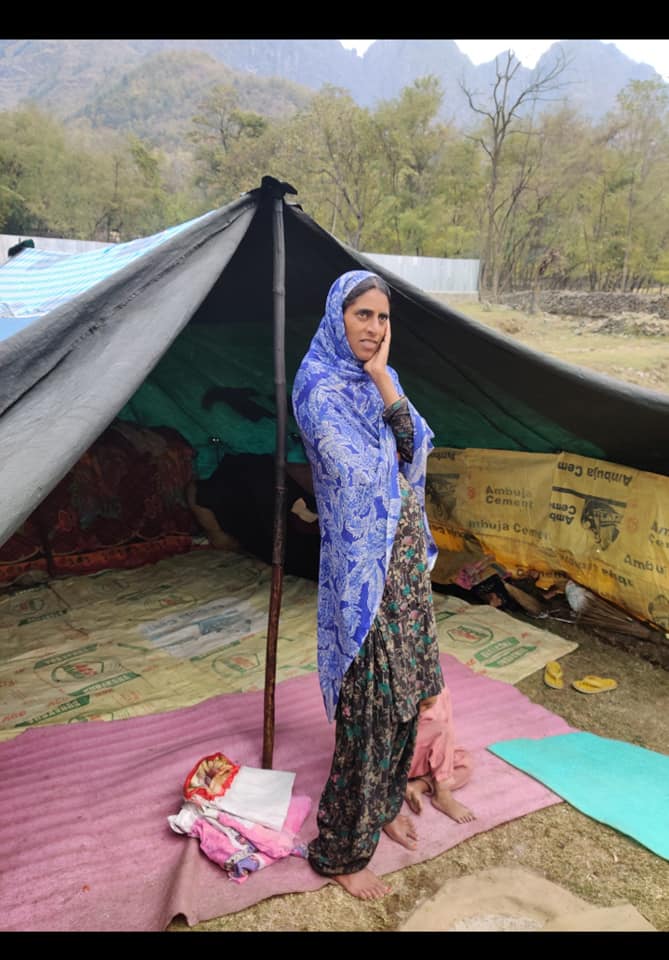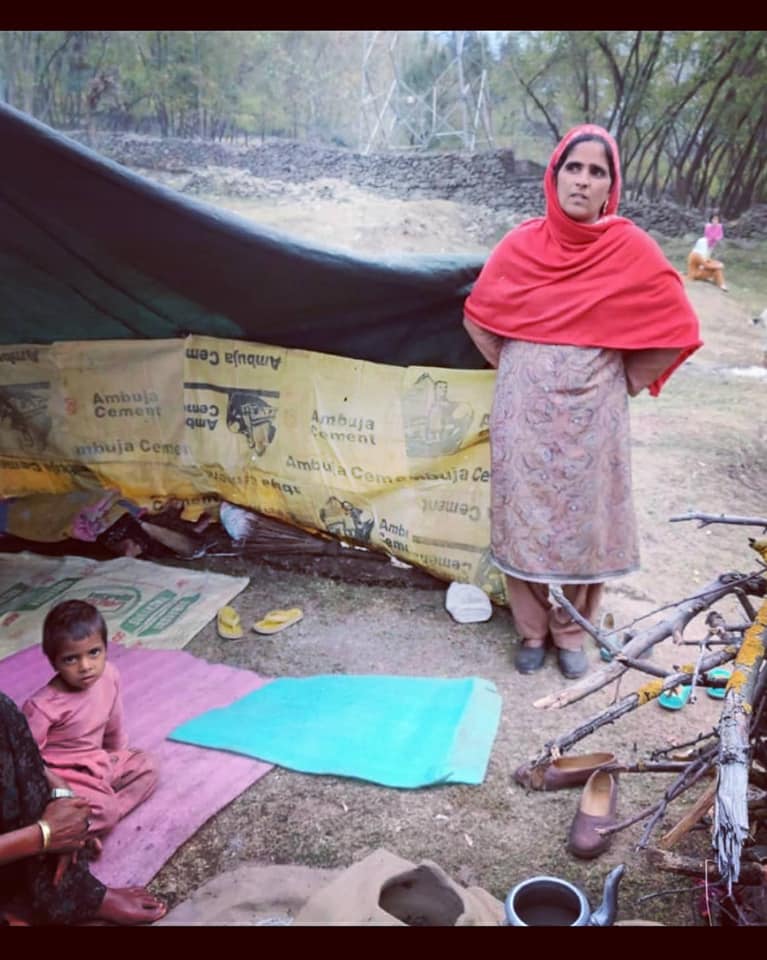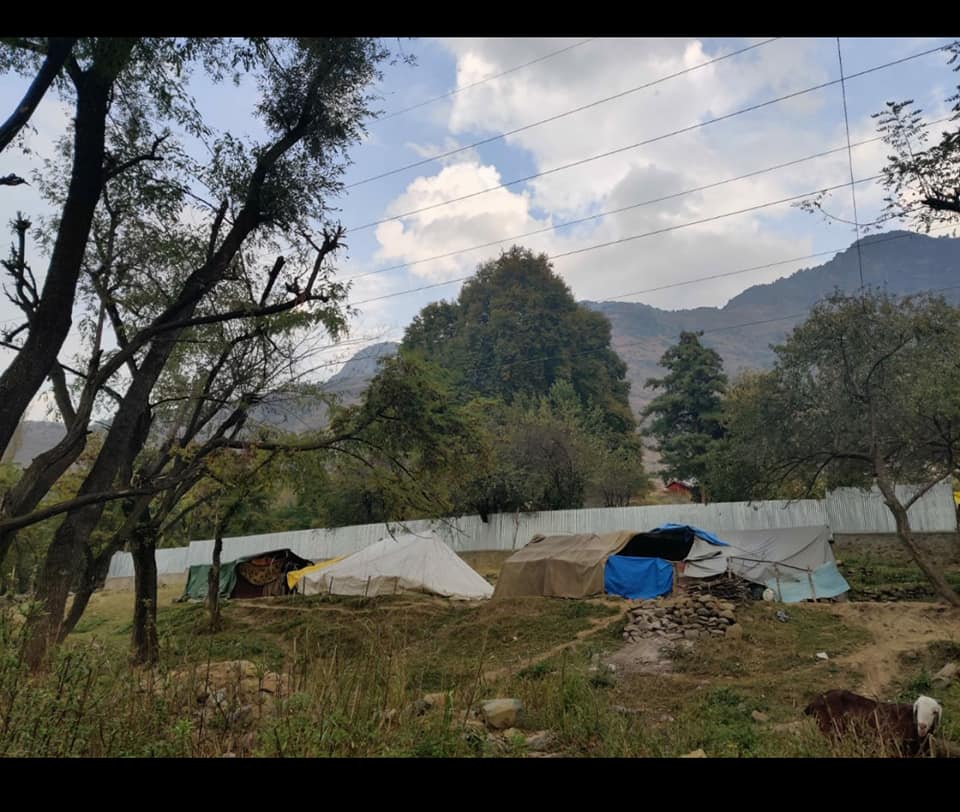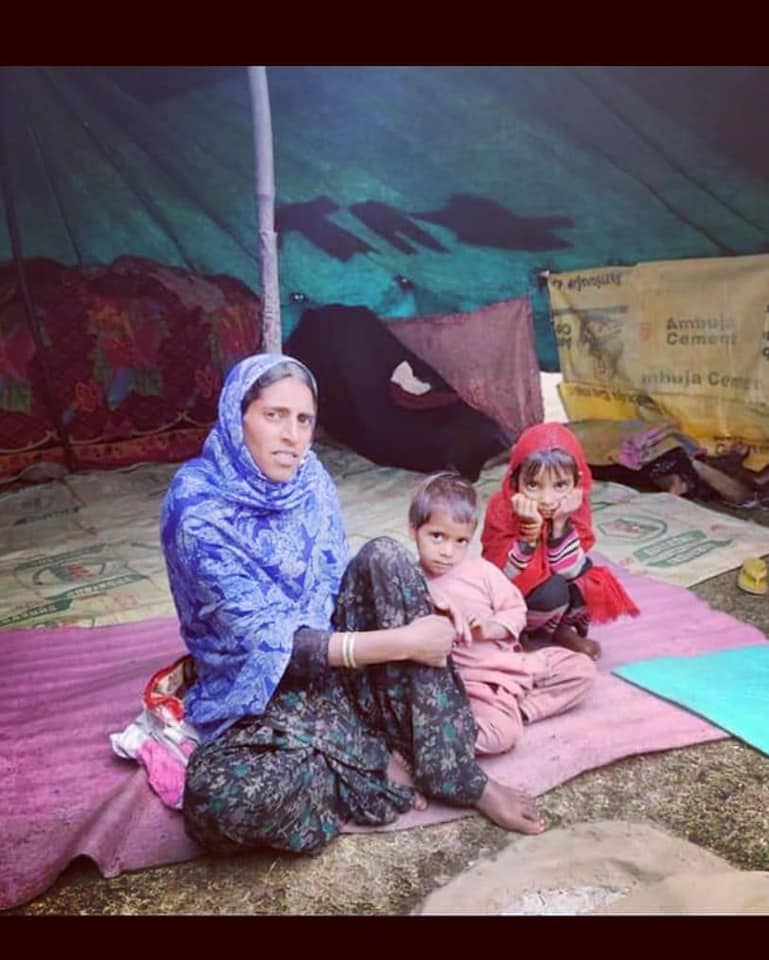By Avani Bansal
Have you ever imagined living a nomadic life, with few possessions, travelling from one place to another, calling different places your home and being completely home at all of them? Last winter, around this time, I met a Bakarwal woman in Srinagar, Kashmir. Bakarwals are a nomadic tribe in the Pir Panjal and Himalayan mountains who reside in Kashmir. The term ‘bakarwal’ comes from ‘bakara’ – goat, sheep or cattle and ‘wal’ or ‘wala’ which refers to ‘one who takes care of’.
When you travel to Kashmir, you see many bakarwals enroute taking their animals which include mostly goats, cattles and sheeps, led by a bakarwal (and usually a dog) at the front, with another bakarwal herding them from behind to ensure that the animals walk in a line. The bakarwals have to travel long distances to ensure that their animals are well fed.
I approached a Bakarwal settlement with slight hesitation, driving on the confidence of the local who accompanied me. He explained in local Kashmiri language that I wanted to speak to the women folk and the women were only too happy to find someone to chit-chat with. They looked at ease, opening the little they had to me, offering me chai that winter afternoon, while their children played carefree around.

“Yahan pani nahi aata?” (Doesn’t water enter this tent?), I asked. “Water-proof hai par thoda sa kabhi-kabhi” (It is water-proof but a little sometimes), she said. While she spoke in mixed Pahadi and Hindi, my friend did some translation.
“School jate hai” – (Do these children go to school?), I asked. “Nahi, par pass mein padne jate hai.” She said that while the children don’t formally attend to schools, someone does teach them nearby in home-tuition. Looking at their humble homes, I didn’t have the courage to ask much but I mustered courage to say “mushkil nahi hota, jagah badalna?” (Isn’t it hard to change places for you every now and then?’. ‘Nahi, ab to aadat ho gayi hai’ (We are used to it now), she said quite simply.
“Aapka din bhar kaise katta hai” (What does your daily schedule look like?), I asked. And she explained how their day begins early, then they take the animals for grazing, milk them, do the household chores, get sticks/wood to light fire, fetch water – sometimes from a far off place and then cook for the evening and settle down. Her day had the busyness one wouldn’t crave for and yet a simplicty which was charming. She explained that her family has a permanent house in Rajouri, a district in Jammu, where Gujjars and Bakarwals form the majority Muslim population. She explained that they go there once a year, when it starts snowing in Srinagar – thus stressing that this nomadic life is a choice and also something they have been doing through generations. Their children, especially girls get married young, mostly amongst the Gujjars and Bakarwals but sometimes also with Kashmiris. In the little time I got to spent with them, I could already see, how little girls took care of their siblings, fulfilling almost a motherly role, while another girl walked the sheep, while a third one – the youngest – played carefree with a ‘dupatta’.
Their houses reminded me of the ‘tent’ game I played with my own siblings and friends when we were young, turning a big table into a tent and decorating it from inside. To see these tents as actual houses of people left me with few words.

Looking straight into my eyes – she asked “Aur aap kya karte hai?” (And what do you do?) I explained that I am a lawyer. To which she followed up quickly – “yahan kab tak hai?” (So when are you here till?) I said I have to leave soon. My friend remarked how I could settle in Kashmir forever, with a smile. We both smiled looking at each other.
The simplicity of this interaction, her deep look, her openness, her warmth, and above all her offering me tea, when she had precious little made it one of those unforgettable memories for me.
Sitting under a hill, with chinar trees looming in the backdrop, the beauty of this woman struck me. Her life to me seemed so light and floating that it was hard for me to decide whether to romanticise it or overthink the hardships that come with a choice like that.

I couldn’t hold myself from asking her – “Do you know about Art. 370?”. She just nodded her head to suggest she didn’t have a clue. I thought so but I didn’t want to assume.
What gave me peace perhaps is a certain contentment that she seemed to have – be that by acceptance of her fate or an attitude of respecting what she had. Either ways, my thoughts travel to her this winter – as they will perhaps for many winters. She may be on another hill range, facing tough conditions and waking up to a harsh cold winter morning. I hope that she maintains that smile and peace on her face amidst all this and a part of me also hopes that she too thinks of me once in a while – knowing our lives are so different yet so related. Also beyond all the debate on Art. 370 and the future of Kashmir, what I think most of when I think of Kashmir, are the people of Kashmir – their love, warmth and simplicity and the Bakarwal woman I met was a true epitome of that.
इंसान से बड़ा और कुछ नहीं (Nothing Is Bigger Than A Human Being)
और इंसानियत से बड़ा कोई धर्म नहीं (And No Religion Is Bigger Than A Humanity)


